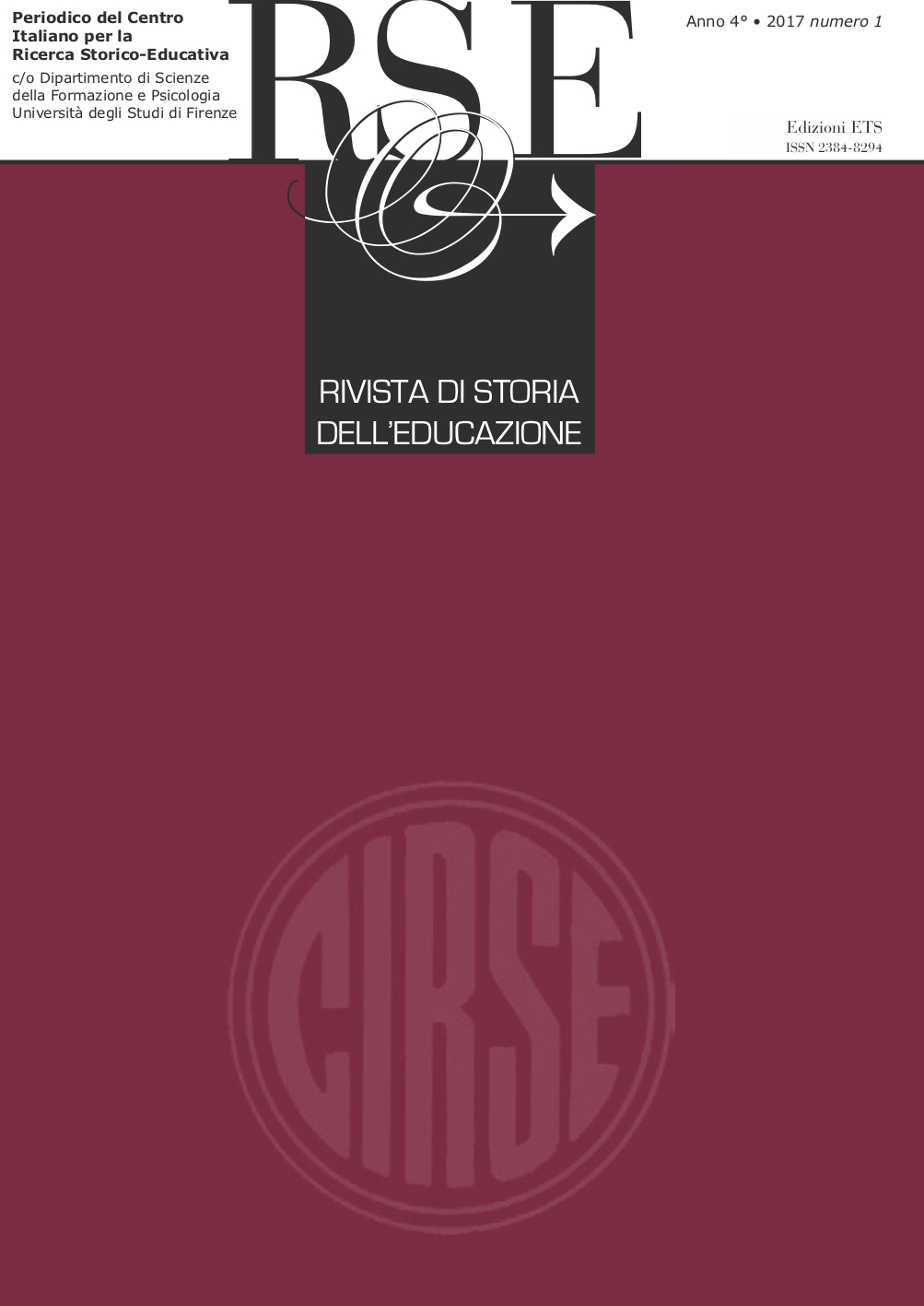Méthode Intuitive: Interregional and international circulation of a pedagogical idea (end of 19th century)
Published 2018-11-13
Keywords
- intuition-based teaching; cultural transfers; Switzerland; late 19th century
How to Cite
Abstract
The circulation, in late 19th Century’s Western Europe, of the idea of intuition-based teaching and learning, is a typical case of cultural transfer as defined by Michel Espagne. Following Alexandre Fontaine’s suggestion about Switzerland as a privileged platforme of cultural transfers in pedagogical issues, we have tried to understand what happened around French re-semantisation, during transfer processes, of German Anschauungsunterricht as méthode intuitive. We found out a very interesting case of resemantisation in the case of Switzerland’s Italian-speaking Canton Ticino, where the word metodo intuitivo was redefined as a “Swiss” pedagogical approach with the clear intention to take the distances from Italy, where the same word was used in a more generic sens and without being reconducted to Pestalozzi and Girard as the “fathers of (Swiss) intuition-based teaching method”. Other interesting cases of re-semantisation are the famous discourse of Ferdinand Buisson around the alleged “philosophical” differences between German and French intuition-based teaching, that hides in the facts a “cleansing” operation with the goal to hide the German origins of the méthode intuitive. French- and German Switzerland’s allows to see that this was not really necessary for a successful transfer of the concept from one linguistic space to the other but the reasons are clearly political.

